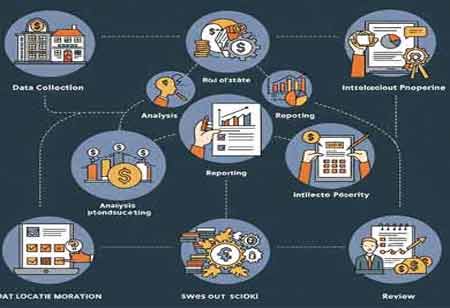CLOSE
Specials
- RegTech Europe
- Financial Risk Management APAC
- Investment Banking APAC
- Corporate Advisory APAC
- Regtech APAC
- Escrow Services
- Digital Banking Latam
- Trading Solutions APAC
- Treasury Management Europe
- CPA Firms Canada
- Financial Risk Management Europe
- Mortgage Broker
- Financial Licensing Europe
- RIA Advisory Europe
- FinTech Canada
- Financial Asset Management APAC
- Investment Banking Canada
- Payment Solution
- Lending Mangment Latam
- Payment Solution Europe
- Broker Dealer Firms Canada
- Alternative Investments Canada
- Financial Fraud
- Investment Management Latam
- Financial Health Europe
- Lending mangment
- Financial Marketing
- Proprietary Trading Europe
- Wealth Management
- FinTech
- Financial Brokerage Firm APAC
- Investment Advisory Europe
- Investment Advisory APAC
- Wealth Management MENA
- Claim Adjusting
- Claim Adjusting APAC
- Mergers and Acquisitions Consulting APAC
- Equipment Financing
- CPA Firms
- Mergers and Acquisitions Consulting Canada
- Investment Services
- Valuation Services Canada
- Wealth Management APAC
- Broker Dealer Firms
- Debt Collection Agencies
- Mergers and Acquisitions Consulting
- FinTech Europe
- Fintech Latam
- Financial Planning / Retirement
- Investment Management
- Financial Compliance
- Digital Banking Europe
- CFO Services
- Debt Collection Agencies Europe
- Wealth Management Europe
- Mergers and Acquisitions Consulting Europe
- Financial Restructuring Europe
- Financial Portfolio Management Canada
- Business Loan
- Payment and Card Latam
- Wealth Management Latam
- Mergers and Acquisitions Consulting Latam
- Tax Advisory Canada
- Trading Solutions Europe
- Alternative Investments
- Digital Insurance Europe
- Investment Services Latam
Weekly Brief
×Be first to read the latest tech news, Industry Leader's Insights, and CIO interviews of medium and large enterprises exclusively from Financial Services Review
Thank you for Subscribing to Financial Services Review Weekly Brief
IPOs and Capital Raising in a Digital Europe
Once a cornerstone of corporate finance, the traditional Initial Public Offering (IPO) process is undergoing a digital transformation in Europe.

By
Financial Services Review | Friday, June 07, 2024
Stay ahead of the industry with exclusive feature stories on the top companies, expert insights and the latest news delivered straight to your inbox. Subscribe today.
The European IPO process is undergoing a digital transformation due to technological advancements, necessitating regulatory frameworks to ensure investor protection and transparency for growth and confidence.
FREMONT, CA: Once a cornerstone of corporate finance, the traditional Initial Public Offering (IPO) process is undergoing a digital transformation in Europe. Technology is streamlining procedures while innovative funding methods are emerging, challenging IPOs' dominance.
Tech Streamlines the IPO Process
The digital age has brought significant advancements to the IPO process. Cloud-based platforms are revolutionising data collection and analysis, facilitating faster and more efficient due diligence. Regulatory filings are increasingly digitised, streamlining communication with authorities. Additionally, blockchain technology promises secure and transparent record-keeping throughout the process.
Efficiency Gains
These technological advancements translate into several benefits for companies seeking to go public. Faster turnaround times reduce costs associated with lengthy IPO procedures. Improved data analysis allows for more accurate valuations and targeted marketing to potential investors. Additionally, digital platforms can facilitate broader investor participation beyond traditional institutional players, fostering greater liquidity.
Alternative Capital-Raising Takes Center Stage
While technology enhances IPOs, Europe is witnessing a rise in alternative capital-raising methods. Here's a closer look at two prominent options:
Direct Listings: Unlike traditional IPOs with underwriters, companies seeking direct listings offer their shares directly on an exchange. This approach streamlines the process and reduces costs associated with underwriters. Music streaming giant Spotify's 2018 direct New York Stock Exchange listing is a notable example.
SPACs (Special Purpose Acquisition Companies): These "blank check" companies raise capital through an IPO to acquire another, typically high-growth, private company. The acquired company benefits from a quicker path to public markets, while investors gain exposure to potentially disruptive businesses. European SPAC activity has increased, with high-profile examples like Dutch-based Pegasus Acquisition Company Europe.
A More Flexible European Capital Market
The increasing adoption of these alternative methods reflects a growing appetite for flexibility in Europe's capital markets. Direct listings provide European companies with a cost-effective option, particularly for established brands with strong investor confidence. SPACs offer a faster and potentially less regulated path to public markets for innovative startups.
The digital transformation and the rise of alternative methods paint a dynamic picture for European capital raising. While IPOs are likely to remain a significant source of capital, their role will likely evolve alongside technology and investor preferences.
Regulatory frameworks must adapt to address these alternative methods' unique features. Additionally, ensuring investor protection and fostering transparency will be crucial for continued growth and investor confidence within this evolving ecosystem.
The future of capital raising in Europe is demonstrably digital. Technology is streamlining traditional processes, while innovative funding methods offer new avenues for companies to access capital. As this landscape continues to evolve, one thing remains certain: Europe's capital markets are poised for dynamism and flexibility, catering to the changing needs of established and emerging companies in the digital age.

Copyright © 2025 Financial Services Review. All rights reserved





